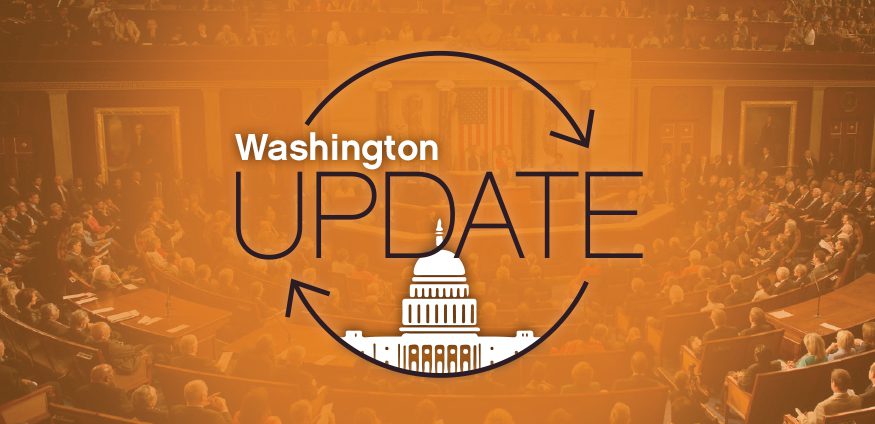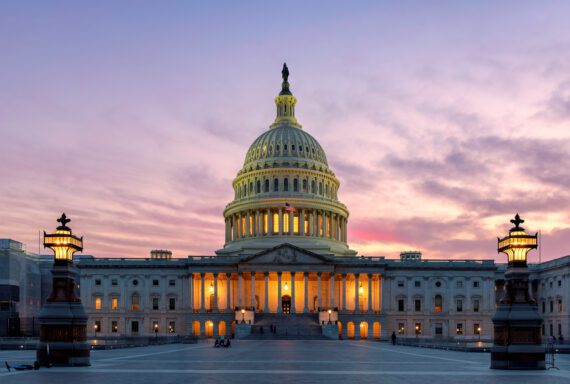- The House Budget Committee will mark up its fiscal year 2018 budget resolution on Wednesday, July 19. While this budget resolution does not carry the force of law, it sets the House up to move forward later this year with a fast-track process for tax reform and possibly other spending cuts to programs like SNAP (formerly food stamps).
- The resolution is expected to go through committee on Wednesday and could come to the House floor next week.
- Typically, budget resolutions also set overall spending levels for annual appropriations bills (discretionary spending). However, the 2011 Budget Control Act put yearly discretionary spending caps in place through 2021.
- Congress has avoided these lower spending caps by passing bipartisan budget deals in 2013 and 2015. The fiscal year 2018 spending cap is $1.065 trillion. Another budget deal would have to be passed to raise the 2018 spending cap.
- By the end of this week, the House Appropriations Committee is expected to have passed all 12 of their appropriations bills out of committee. They have put forth bills totaling $1.132 trillion in overall discretionary spending for 2018. The House is expected to group these bills into an omnibus.
- This group of bills cannot become law as written without triggering sequestration – across the board spending cuts that would impact defense and non-defense discretionary programs. The House and Senate will have to come to an agreement to raise the spending caps if they want to move forward at these spending levels.
- While members on both sides of the aisle agree the caps need to be higher, how that will happen is up for debate. Chances are, we will end up with a continuing resolution for fiscal year 2018.
- The Senate is also beginning to move forward on appropriations bills. They have yet to release their overall spending total for fiscal year 2018, but are expected to do so at an Appropriations Committee markup on Thursday, July 20.
- In the meantime, the committee will move forward with marking up individual bills. The Agriculture Appropriations Bill will go through subcommittee on Tuesday, July 18 and full committee on Thursday, July 20.
- The House State/Foreign Operations Bill was marked-up in subcommittee last week and expected to go to full committee on Wednesday, July 19. Funding levels are $10 billion below the total enacted in fiscal year 2017, but it looks like child health and nutrition are set at level funding.
- We are very concerned about the World Bank IDA (International Development Association) because it was cut by nearly 50 percent. This accounts helps to provide a stable and substantial source of funding for basic services in countries with the most need, much of it being focused on battling malnutrition.
Medicaid
- The Better Care Reconciliation Act of 2017 (BCRA), the Senate’s bill to replace the Affordable Care Act or “Obamacare,” was supposed to come to the floor for a vote this week. The vote was initially delayed due to Sen. John McCain’s surgery last week. However, with at least four Republican senators now in opposition to the legislation, Senate Majority Leader Mitch McConnell will not be able to bring the bill to a vote at all.
- The BCRA would put millions of lives at risk, cutting Medicaid by $772 billion and rolling back the Medicaid expansion. People with disabilities, children, senior citizens, and low-income adults are able to access lifesaving care because of Medicaid. The BCRA would take that access away from more than 15 million of the most vulnerable Americans who depend on it.
- Senate leadership is now regrouping and considering a vote on a bill that only repeals the Affordable Care Act. The bill would not include a replacement plan. The bill would likely delay the implementation of the repeal for at least two years to allow for a replacement plan to be written.
- A similar bill passed out of Congress in 2015 but was vetoed by President Obama. According to the Congressional Budget Office score of the 2015 bill, repeal and delay will cause instability in the market and an estimated loss of health coverage for 32 million Americans.
Act Now!
The House Budget Committee is considering a budget proposal this week that could include at least $200 billion in cuts to programs that help low-income people. Call (800-826-3688) or email your representative and senators and urge them to oppose cuts to critical programs, such as SNAP (formerly known as food stamps), Medicaid, refundable tax credits, and international development.
You can subscribe to the content of Washington Update, delivered to you as an email, in a newsletter called Fresh Bread.



